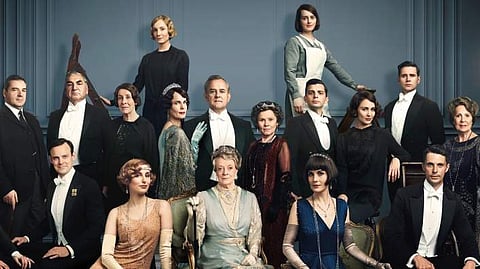

After last year's The Chaperone, director Michael Engler is back in the business with Downton Abbey, the movie, which is releasing in India this Friday. The film continues the storyline from the series of the same name, which ended in 2015 after 52 episodes.
The director opens about the challenges he faced while making a film based on a popular TV show. He also shares his experience of working with the team and logistical issues.
Joining the team
“I first met (producer) Liz Trubridge as they were putting together the fifth season, and we were just talking about what it’s like making television shows in the UK and the US. I was already a huge fan of Downton Abbey and could practically recite it chapter and verse. Liz was intrigued by the possibility of somebody with an outside perspective bringing something new to it at that point in the series. We started talking about it and I met with the creator Julian Fellowes and executive producer Gareth Neame, and we all just hit it off. I directed one episode in the fifth season and then they invited me back to do a few in the final season. The cast and crew are very much an established family. I felt like there was very little hierarchical distance between the actors, the day players, the crew, and the department heads. I thought, being the only American to direct the show, there would be some resistance to what I might bring to it, but actually, there wasn’t at all, it felt like a very natural fit.”
Coming home
“Everybody was so happy to be back together for the movie. It was like a college reunion; very playful, very happy, but very professional. There was a real sense of joy and a sense that you’ve been a part of something that was iconic and historically unique, which is rare. Wherever you are in your career, it starts to really hit you what the impact of Downton Abbey was and is. I think everyone really relished the idea that they could come back together one more time and be part of that, and make more of it.”
Bringing new ideas to the table
“In terms of what I would brought to the film, I discovered that not taking certain things for granted about the culture or how society works or how people were supposed to behave, would often give rise to an interesting discussion about what underpinned society. I think the other crew and cast enjoyed that I would not quite understand something culturally and that would lead to open debate and discussion.”
Differences between TV and film
“In terms of bringing it to the big screen, Downton Abbey was scaled up. We wanted it to feel like you didn’t have to be a diehard fan to enjoy it. However, if you were an avid fan or somebody who watched it occasionally, you would get a lot of detail about the characters and relationships that were rich and fulfilling. The film needed to feel like the one big unifying event that would bring them all together."
Biggest challenges
“I think the biggest challenges were really just getting everybody focused so that we could get the film made in the time that we had. Many of the cast were travelling into the UK from India, New York, and California. In some cases, they were available only for a day or two. It was a logistical puzzle to make it work out, but it did in the end.”
Downton Abbey's success
“I think it’s the classical values depicted in the show, that are also universal, that contributed to its success. I think people do feel an inherent sense of nostalgia and realisation that historically we were as similar then as we are now. I also think part of it is just for the same reason that people go to the National Gallery or the National Portrait Gallery... British history has a particular set of literary, visual, cultural heritage that still resonates for people, and it is still beautiful.”